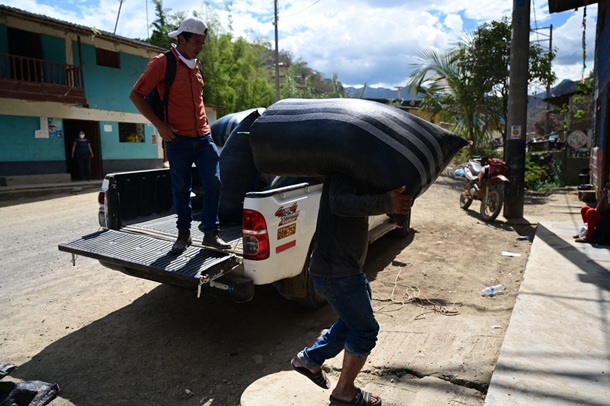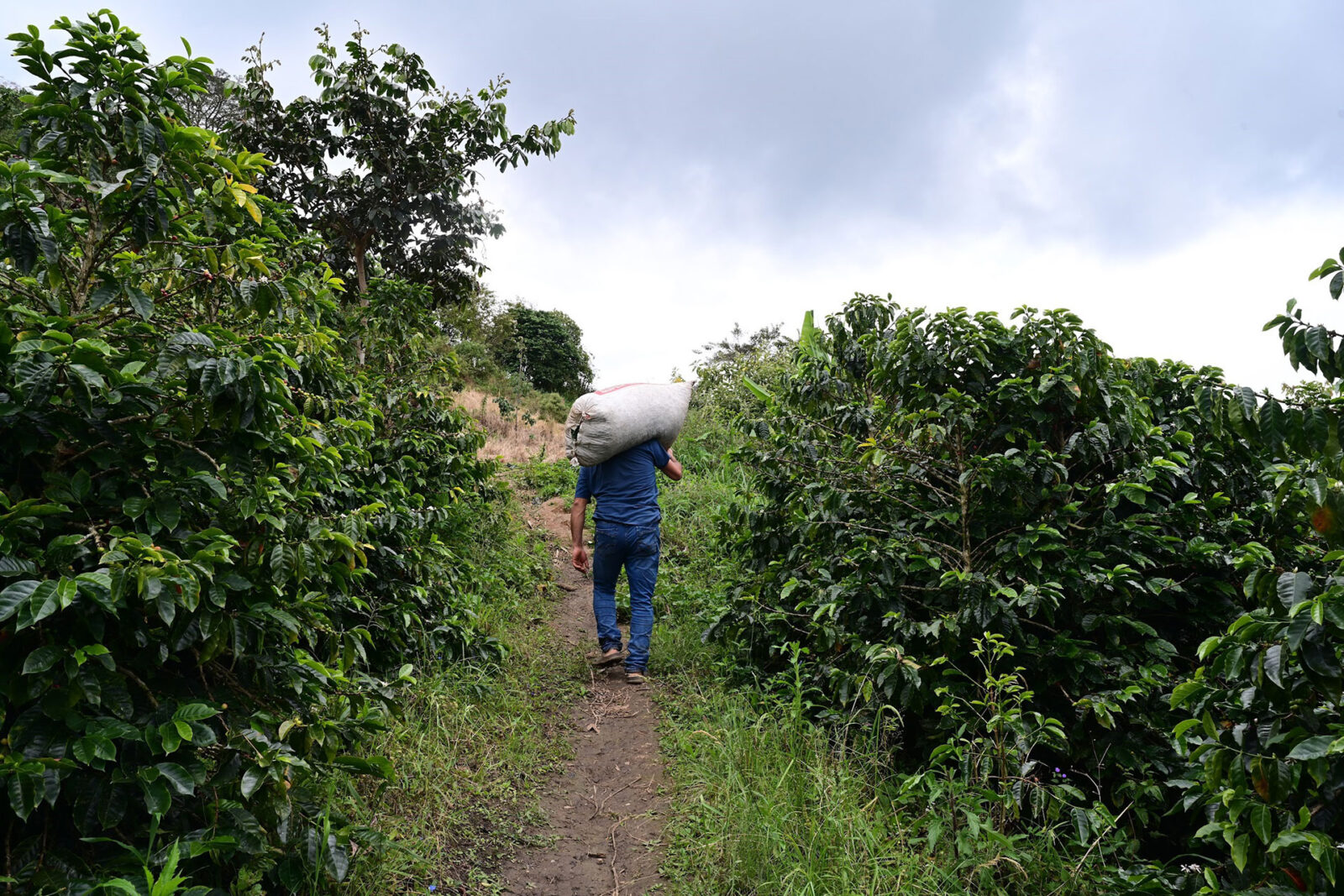Coffee has been grown in Peru since the 1700s, but the country really started to scale its coffee production at the start of the 20th century. In the years since, this growth has continued at a remarkable pace. By 2014, Peru was one of the top 20 producers in the world. By 2019, it was 11th.
This growth has only been made possible by the hard work of producers, traders, and other coffee businesses based in the country. One such example is Origin Coffee Lab (OCL), an exporter based in the city of Jaén, Cajamarca. OCL has a strong belief in supporting farmers and paying them a living wage, as it believes that they are the heart of the coffee industry.
Let’s take a closer look at the organisation and how it is driving change in the Peruvian coffee supply chain.

Peruvian coffee production
The main coffee producing regions in Peru are Amazonas, San Martin, Chanchamayo, Puno, Cusco and Ayacucho. You’ll find the largest share of production in the northern highlands of Amazonas and San Martin, which is responsible for just under half of all Peruvian coffee..
More than 800,000 Peruvians rely on coffee for their income. Figures for the 2020 harvest sit somewhere around 3,772,000 60kg bags.
Peruvian coffee is usually grown between 1,000 and 1,800 m.a.s.l., and most of it is washed, with natural processing and other methods starting to gather speed in the past few years.
Producers growing coffee for the specialty market generally cultivate the Typica, Bourbon, Caturra, Pache, and Catuai varieties. Interestingly, in Peru, the Typica variety is actually often known as Nacional.
Broadly speaking, Peruvian coffee is known for its low acidity, medium body, and notes of fruit, nuts, and flowers, especially when grown at lower altitudes.
However, high-altitude coffees from the country’s highlands show more brightness, sweetness, and a more intense floral flavour.
In the areas around Jaén, where OCL is based, four emerging coffee varieties with great potential have been identified: La Coipa, Colasay, Santa Rosa, and San Jose del Alto. These varieties are rust-resistant, yield high-density beans, and have featured prominently in the country’s national Cup of Excellence competition over the past few years.

Introducing Origin Coffee Lab
In Peru, the most significant challenges farmers face include poor infrastructure and climate change. In particular, unpredictable and unprecedented heavy rainfall can cause a number of severe issues, including uneven cherry ripening and plant damage..
To further complicate matters, the climate varies widely across Peru’s coffee-growing regions, even in the regions around Jaén.
Here, OCL works directly with producers, cupping all deliveries and paying a premium directly related to the quality of their coffee to show how their crop can be differentiated. They also provide education on financial and agricultural best practices to help farmers move towards a more sustainable future.
The prices OCL pays to producers starts with the market rate for organic coffee as the base. A quality premium is then added to that. In 2019, OCL paid an average of 37% above the market price to smallholder coffee farmers in Jaén.
In the past year, this works out at more than US $500,000 paid in quality premiums to smallholder farmers.
OCL also carries out a number of initiatives to invest in the quality of future coffee harvests. In recent years, it has funded the construction of a warehouse for storage and green coffee sorting, as well as a new vacuum packing line for microlot and nanolot coffees.
The Solidario Project
More recently, OCL has outlined a mission to help smallholder farmers through its Solidario Project.
This programme is based on a holistic developmental model that aims to support farmers through economic and agricultural modelling. This is designed to improve cup quality while also making coffee farming a consistently profitable practice for the next generation of farmers.
Jaén is the largest city in the area, where many co-ops and traders are located. It is a city of about 90,000 people. In spite of this, however, many producers in the area still require better market access.
For two years, OCL has worked with many of these farmers to provide more information on how to train harvest workers and finance their farms. Beyond that, they have also independently sold a variety of coffees to local markets, as well as working with OCL to provide high-quality, high-scoring beans for blending as demand increases in this area.
Over 200 growers from the region are organised into 17 comités, or committees, which then provide other farmers with the tools they need to address any issues they might face.

OCL’s mission is to invest in ethically-produced Peruvian coffee and improve transparency across the coffee supply chain. The OCL team’s values align with ours at Condesa, and as such, we have partnered with them to source some amazing coffees..
At present, we have two coffees from OCL on offer. The first is a washed single origin, grown at 1880 m.a.s.l. with a cup score of 85.75. It has notes of apricot, nougat, and pear, with nuttiness and brown sugar sweetness. Alongside that, we are also offering an 86-point blend of washed coffees, which has notes of apple, apricot, and dark chocolate.
Don’t miss out, and check them out today, as they’re only available while our stocks last.


